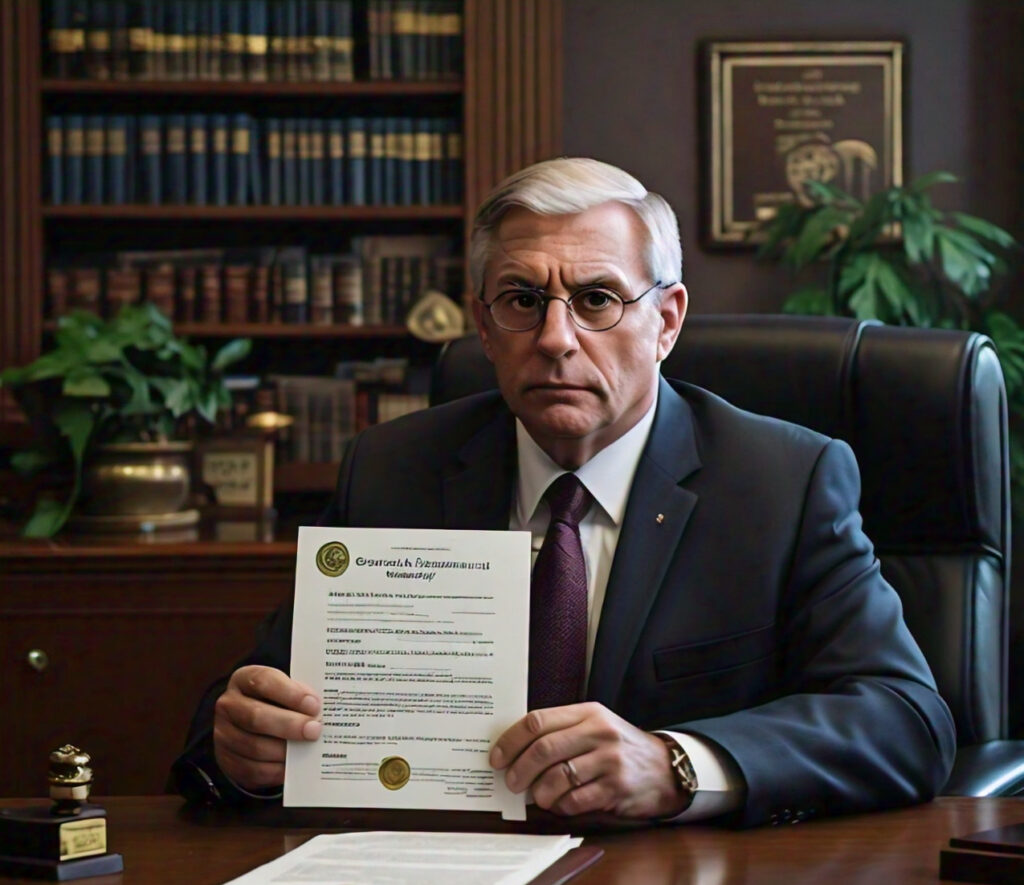Life is not without its twists and turns, and while we all hope for the best, it is always a good idea to make provisions in advance should something unfortunate happen to us and we can no longer make decisions for ourselves. This brings us to the power of attorney and healthcare directives. These are legal tools that ensure your wishes are recognized and taken care of, as well as your affairs being handled per your preference-even if you are no longer able to converse or make decisions.

In this comprehensive guide, we are going to delve deeply into the world of power of attorney and health care directives. We are going to discuss in detail what they are, why they are so important, how to create them, and how they work pragmatically speaking. This article is to serve whether one is planning for their future or trying to assist a loved one by equipping them with the knowledge necessary for enlightened decision-making regarding these very critical legal documents.
What is Power of Attorney?
Power of Attorney is a legal paper that empowers another individual to act on one’s behalf in private affairs, business, or any other form of legal concern. The grantor of such powers is referred to as the “principal,” while the person granted with such powers is called an “agent” or “attorney-in-fact.”
Types of Power of Attorney
There are a few types of POA, each serving different purposes:
- General Power of Attorney: This gives the agent general powers to handle all affairs that concern the principal.
- Limited Power of Attorney: Also known as Special Power of Attorney, it grants an agent the powers to act on behalf of the principal in specific matters or for a certain period.
- Durable Power of Attorney: POA remains valid even in the event of incapacitation of the principal.
- Springing Power of Attorney: This takes effect only when an event has occurred and usually occurs when the principal is deemed incapable.
- Medical Power of Attorney: In this, someone has been granted the power to make medical decisions regarding the principal in case they are unable to carry out the act of making decisions on their own.
- Financial Power of Attorney: This allows the agent to carry out all acts regarding financial matters related to the principal.
###
Why is Power of Attorney Important?
POA is quite critical to have in place for numerous reasons, including providing:
- Continuity in Decision-Making: If you became unable to manage your affairs, your named agent could take over without anything falling apart.
- Avoiding Court Intervention: Without this legal document, if you were to become incapacitated, your family would have to go to court to obtain authority regarding affairs.
- Naming Your Agent: You can appoint your representative rather than leaving it to chance or court decision.
- Flexibility: With so many types of POA, you are able to tailor-make the power to be granted to your specific needs and circumstances.
- Peace of Mind: It could mean the world to you to realize your concerns will be looked after by somebody you trust.
What are Healthcare Directives?
Advance directives, or health care directives, are legally binding documents that specify how you want medical treatment to proceed if you cannot make those decisions for yourself. There are two main components in an advance directive: a living will and a medical power of attorney.
Living Will
A living will is a document that describes the treatments you would or would not want to receive if you were seriously ill and unable to speak for yourself in a life-ending or permanent unconscious situation. It generally addresses things like the following:
Life-sustaining treatment
Pain management and comfort measures
Organ and tissue donation
Hospice care preferences
Medical Power of Attorney
Also known as a healthcare proxy, this is a document that appoints an individual to make medical decisions for you in the event that you are unable to do so. This agent needs to be someone whom you believe is trustworthy enough to carry out and enforce your wishes.
Why are Healthcare Directives Important?
Healthcare directives serve many significant purposes:
- Your Wishes Carried Out: They document what should happen or not happen in concern to your medical treatment.
- Decreasing Family Stress: This can prevent arguments among loved ones regarding your care.
- Giving Health Care Providers Direction: They give health professionals direction regarding your treatment.
- Preventing Undesired Treatments: They can also ensure that you are not given medical treatments that you do not want.
- Peace of Mind: It’s reassuring for you and your family to know your wishes will be followed.
The creation of a power of attorney involves a few steps:
- Determine the Type of POA: Depending on your needs, determine whether you need a general, limited, durable, or springing POA.
- Name Your Agent: You want to find someone you are absolutely sure will look out for you as yourself. It is also prudent to name an alternate agent.
- State the Powers: The powers granted to the agent must be stated. Be sure to be as detailed as possible to avoid confusion.
- Consider Time Limits: You must decide if your POA is to last for a specific period or to continue indefinitely.
- Get the Document: The POA forms may be obtained from legal Internet sites, office supply stores, or an attorney.
- **Fill in the Form: Complete the form with the powers being granted, plus limitations, if any, when the POA becomes effective and when the POA expires.
- Signing and Notarization: Most states require that you sign the document in front of a notary public. Some states also require witnesses.
- Notification of Relevant Parties: The bank, doctors, and other institutions should be informed about your POA.
- Storage: Keep the original safe and provide copies to your agent and alternate agent.
Creating Healthcare Directives
To create healthcare directives, follow these steps:
- Reflect on Your Values: Consider what quality of life means to you and what medical interventions you would or would not want.
- Choose Your Healthcare Proxy: Decide upon someone whom you can trust to make medical decisions for you.
- Discuss Your Wishes: Have detailed conversations with your chosen proxy about your healthcare preferences.
- Get the Forms: Obtain the living will and medical POA forms. Many times, these are available from hospitals, doctor’s offices, or state health departments.
- Fill Out the Forms: Fill out the forms, listing your wishes for various medical scenarios.
- Sign and Witness: Most states require you to sign the documents in front of witnesses, and some may require it to be notarized.
- Distribute Copies: Provide copies to your healthcare proxy, alternate proxy, doctor, and hospital, but keep the originals in a safe yet accessible location.
- Review Regularly: Your wishes may change over time, so from time to time, review your directives and update if necessary.
Legal Requirements and Considerations
Although all states in the country have general principles of the POA or health directives somehow the same, their specific legal approaches differ. Considerations include the following:
Power of Attorney
- Capacity: The principal must have mental capacity when making the POA.
- Specificity: It should spell out the powers to be given to the agent.
- Durability: Most states require that a POA include language indicating it is “durable” to be valid in case the principal becomes incapacitated.
- Limitations: Some states may limit the types of powers available for delegation by means of a POA.
Health Care Directives
- Age Requirement: In most states, individuals must be at least 18 years old at the time of creating advance directives.
Witnesses: Many states require two witnesses for healthcare directives. Often, these witnesses can’t be family members or health care providers.
Out-of-State Validity: While most states honor other states’ directives, it is highly advisable that, in case of move, one should find that out.
Physician Involvement: Some states require a doctor to certify that you’re incapacitated before a health care proxy can make decisions.
Considering these kinds of differences, it’s often best to check with a local attorney so your documents will meet state requirements, as well.
Naming Your Agent or Healthcare Proxy
Legislations vary in what they call a person who will act on behalf of another. The agent is usually appointed for a POA, while some states refer to the person making decisions for you in regard to health care as your healthcare proxy. The following are some points to consider in naming an agent or healthcare proxy:
- Trust Level: Choose someone whom you know will carry out your wishes sincerely.
- Understanding of Your Wishes: He or she should know about your values and preferences.
- Ability to Make Difficult Decisions: For health care proxies in particular, the ability to make hard decisions under stress is a must.
- Availability: Also, take into consideration whether the person will be available to act when the need arises.
- Financial Acumen: For financial POAs, you can choose a person who has managed your money responsibly and, maybe, has some basic knowledge in finance.
- Willingness to Serve: Make sure he or she is willing to accept this responsibility.
- Age and Health: Preferably, select a person who will most probably be in good health at a time when you may require them.
It’s wise to name an alternate agent or proxy in case your first choice is unable to serve when the time comes.
Common Mistakes to Avoid
Watch out for common perils that come your way when writing POAs and healthcare directives:
- Waiting Too Long: Don’t wait until it’s too late. Accidents or illnesses can occur at any age.
- Being Too Vague: Spell out clearly powers you are giving and your healthcare desires.
- Choosing the Wrong Person: Be sure your agent or proxy can be trusted and is capable of managing that responsibility.
- Not Updating Documents: Generally speaking, it would be good if you went over your POA and healthcare directives with some regularity and updated them as your situation changed.
- Forgetting to Inform Others: Let relevant people and institutions know about your POA and health directives.
- Not Following State Laws: Make sure the documents you create meet all of your states’ legal requirements.
- Assuming Family Members Can Act Without POA: Many people assume that their spouses or adult children can always make decisions on their behalf.
- Writing Conflict Between Documents: Ensure that all documents are complementary and work in harmony with one another, like your POA, healthcare directives, and other estate planning documents.
How POA and Healthcare Directives Work in Practice
It’s valuable to know how such documents work in real life:
Power of Attorney in Action
Suppose Sarah has given her son, Tom, durable power of attorney for financial matters. Should Sarah have a stroke and no longer be capable of managing her finances, Tom can:
Pay Sarah’s bills and taxes
Attend to her investments
Sell her property if that becomes necessary for her care
Apply for benefits on her behalf
This means that if this were not the case, and if he did not have POA, then Tom would need to go to court and seek the authority to manage her affairs. That may be a very time-consuming and costly process.
Healthcare Directives in Operation
John has executed a set of advance directives. His living will specifies that he does not wish to remain on life support if there is no reasonable expectation that he will recover. He appoints his sister, Mary, as his healthcare proxy.
If John is involved in a serious car accident and becomes a victim of a persistent vegetative state, the doctors would refer to his living will. According to what John said in the living will, they would not apply extraordinary measures to keep John alive. For all the rest of decisions that are not covered by the living will, Mary would have the legal right to make them for John.
Revoking or Changing POA and Healthcare Directives
Life changes, and sometimes your POA or healthcare directives need to change as well. Here’s how you modify or revoke such documents:
How to Revoke Power of Attorney
- Draw up a document revoking the power of attorney.
- Notify your agent, in writing, that you are revoking the power of attorney.
- Give notice to any third parties with whom your agent might have acted on your behalf-for example, banks and doctors.
- Destroy all copies of the old power of attorney.
Changing Healthcare Directives
- Create new documents that reflect your current wishes.
- In the new documents include a statement that they revoke all previous documents.
- Sign and witness/notarize the new documents as per your state’s requirements.
- Give copies of the new documents to all concerned parties.
- Destroy all copies of old documents.
Note, you can only revoke or change these documents if you are still mentally capable of doing so.
Conclusion
The power of attorney and healthcare directives are potent tools toward ensuring that your affairs are handled in a manner you deem fit, even in scenarios where you may not be able to make decisions about yourself. You will be in control of your life by being very clear about what you want and who will carry out your wishes, bringing peace of mind to yourself and those close to you.
These are thoughtful, deliberate documents. You may want to consider your values, discuss your wishes with your loved ones, and seek an attorney familiar with your state’s laws regarding these documents. It may be a potentially daunting process, but well worth the sense of security and peace of mind it affords.
Remember that none of these is a one-time decision. Your POA and health care directives should be reviewed regularly and updated when changes in your life occur to reflect your wishes.
This allows you, by devoting the time to create these basic legal documents, to protect yourself and spare your loved ones the need to make agonizing decisions and potentially very hurtful arguments at extremely stressful times in their life. It is, indeed, a gift of clarity and surety in the face of life’s uncertainties.
Although this is an in-depth guide to power of attorney and health care directives, there are always nuances to everyone’s different situations. In complex family or financial situations, it is always advisable to consult with a qualified attorney who can provide specialized advice in these matters. They will ensure that your documents are formatted according to your specific needs while adhering to all pertinent laws.
Take action today. Your future self – and your loved ones – will thank you for the foresight and care.






